Before buying your first RV, there’s a good chance you’ve never camped in one before, at least not on a regular basis. When you’re in the market for an RV it’s easy to overlook some key considerations while making this important purchase, especially when your mind is swirling from all of the RV manufacturers, rig types, floor plans, and amenities.
Before my family purchased our first Jayco trailer in 2015, we had done some camping in various RVs my in-laws owned. However, there were many things we didn’t consider when selecting our own since we’d never bought one before and were in a different life stage.
Luckily, our first rig ended up being a good fit, and we kept it for 5 years before upgrading. We went into our upgrade shopping process with a better idea of what RV we wanted and how to get it.
From budgeting and bargaining to features and floor plans, here are nine items to consider when buying your first RV.
1. Know How to Match a Trailer With Your Tow Vehicle
Safety always comes first on the road, and for those considering a trailer, that’s especially true when it comes to having a tow vehicle that can safely haul your rig. If you already have a tow vehicle, you can use its tow capacity rating as a starting point, but it’s best to be conservative with your numbers since you’ll still have to consider things like vehicle, trailer, and cargo (both inside the vehicle and trailer) weights, which all play a role in your towing capacity.
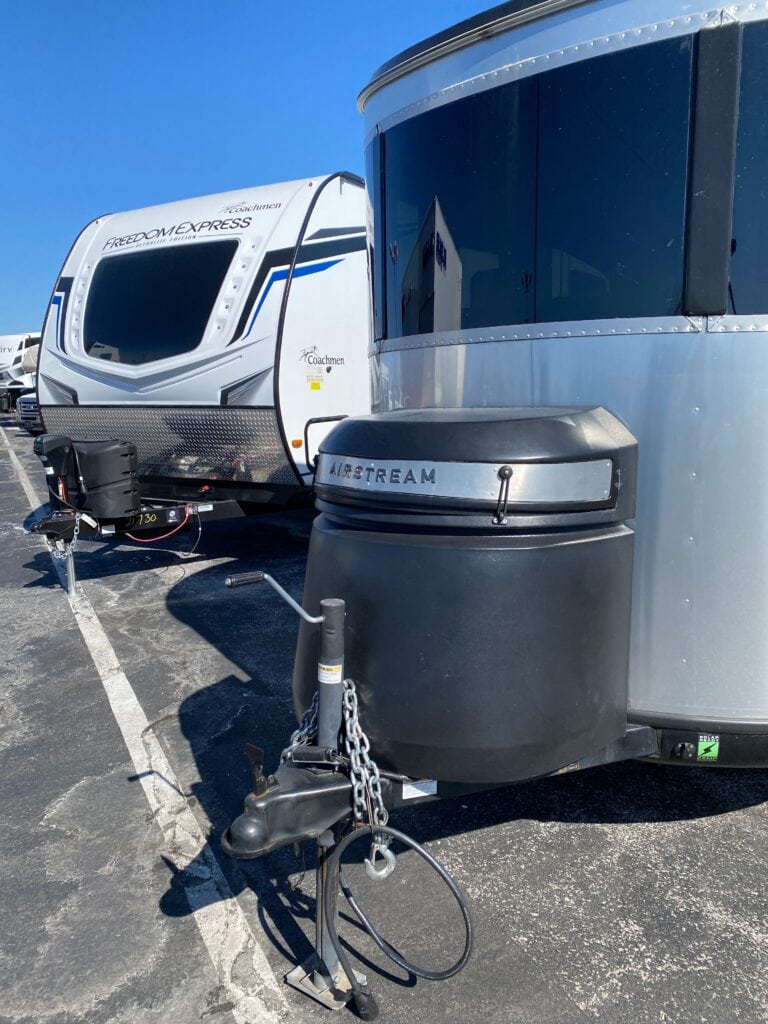
Even if the dealership tells you that your tow vehicle is a good match for one of their RVs, it’s always best to do your own homework so you don’t end up with a rig your vehicle can’t tow.
2. RV Financing Isn’t the Same
While shopping for cars, you can usually find low interest rates and competitive lending options, but that’s not always the case for RVs. When financing an RV, you’ll tend to come across higher interest rates and fewer financing options with no direct loans or special offers coming directly from the manufacturer. On the plus side, RVs usually qualify for longer loan terms than a car, with financing options extending up to 20 years.
3. Watch for Extra Fees
Just like any other major purchase, hidden fees can catch you by surprise when buying an RV. Gretchen Holcombe, an RV travel blogger who’s purchased three trailers, shares her varied experience: “Some dealers will quote a price that includes most everything (other than maybe taxes and title fees), while others will quote one price to get you interested and then add on all kinds of other charges later for things like delivery and inspection and dealer prep.”
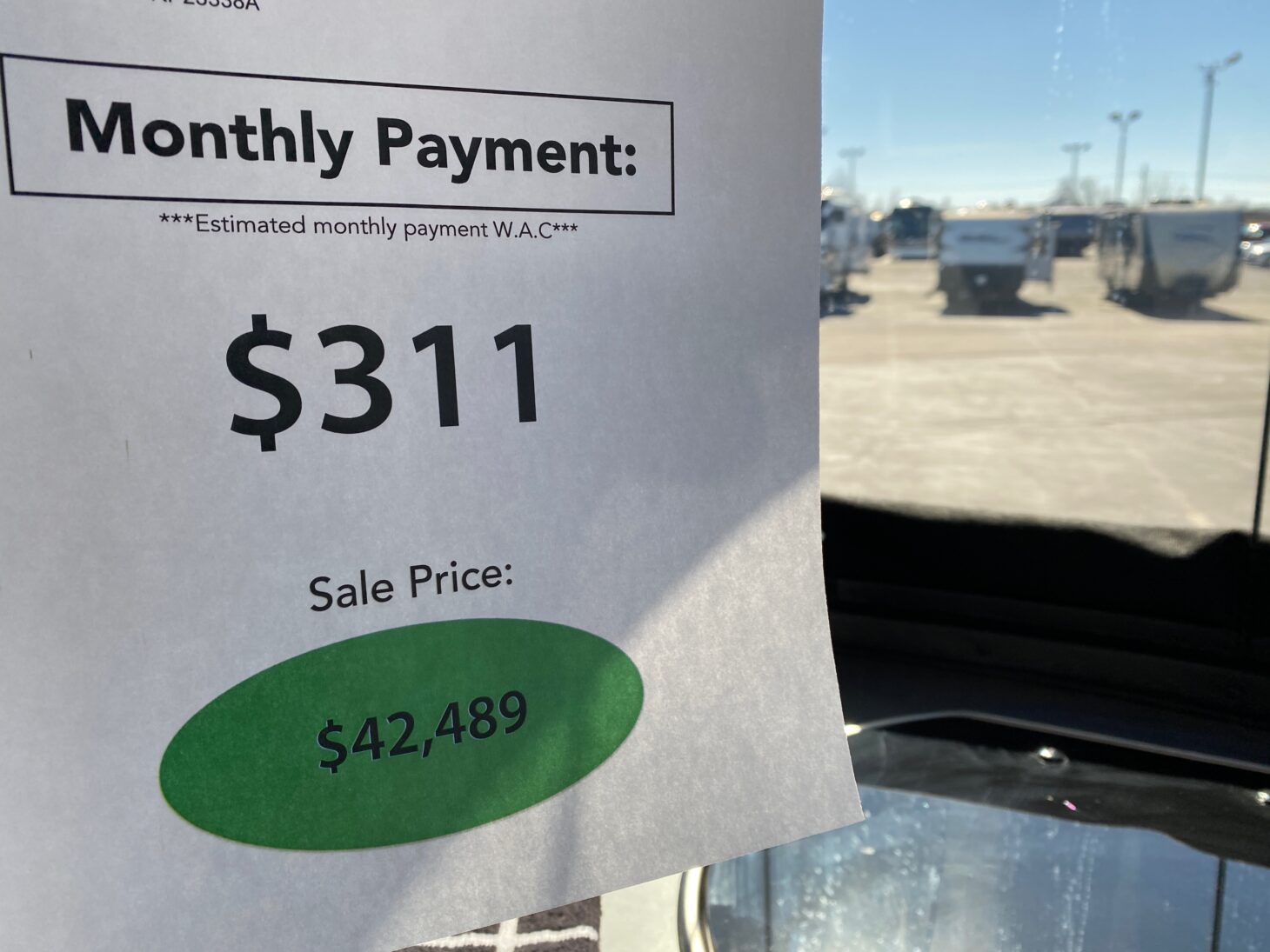
If you find comparable RVs at multiple dealerships, ask about additional fees and see if any are negotiable. Holcombe continues, “Make sure you’re comparing final ‘out the door’ prices when you’re shopping around and trying to find the best deal.”
4. Consider Your Long-Term Living Situation and Family Dynamics
If you purchase an RV with a 7-year loan and have preschool-aged children, your kids will be close to their teens by the time you pay off your rig. While it’s always possible to upgrade your RV, you should think about how your family and everyday life might change in the long-term, so you’re purchasing an RV that meets your needs for today and the future.
My boys were 11 and 14 years old when we bought our first trailer. By the time we sold it 5 years later, we could hardly fit their lanky teenage bodies into the rig. Also, as younger kids turn into teenagers with busy schedules, they may camp with you less often, so things like large bunkrooms can go to waste. While you can’t predict the future, it’s good to try to imagine it at the very least.
5. RV Warranty Repairs Can Take Months
New buyers are often happy if their rig comes with a warranty, but most people don’t realize that warranty repairs can take your RV away from you for months at a time. The service center must diagnose the problem, get your manufacturer’s approval, order parts, and then do the repair. Instead of sending your RV in for every small repair, it’s more efficient to make a list of repair needs that can be handled all at once.
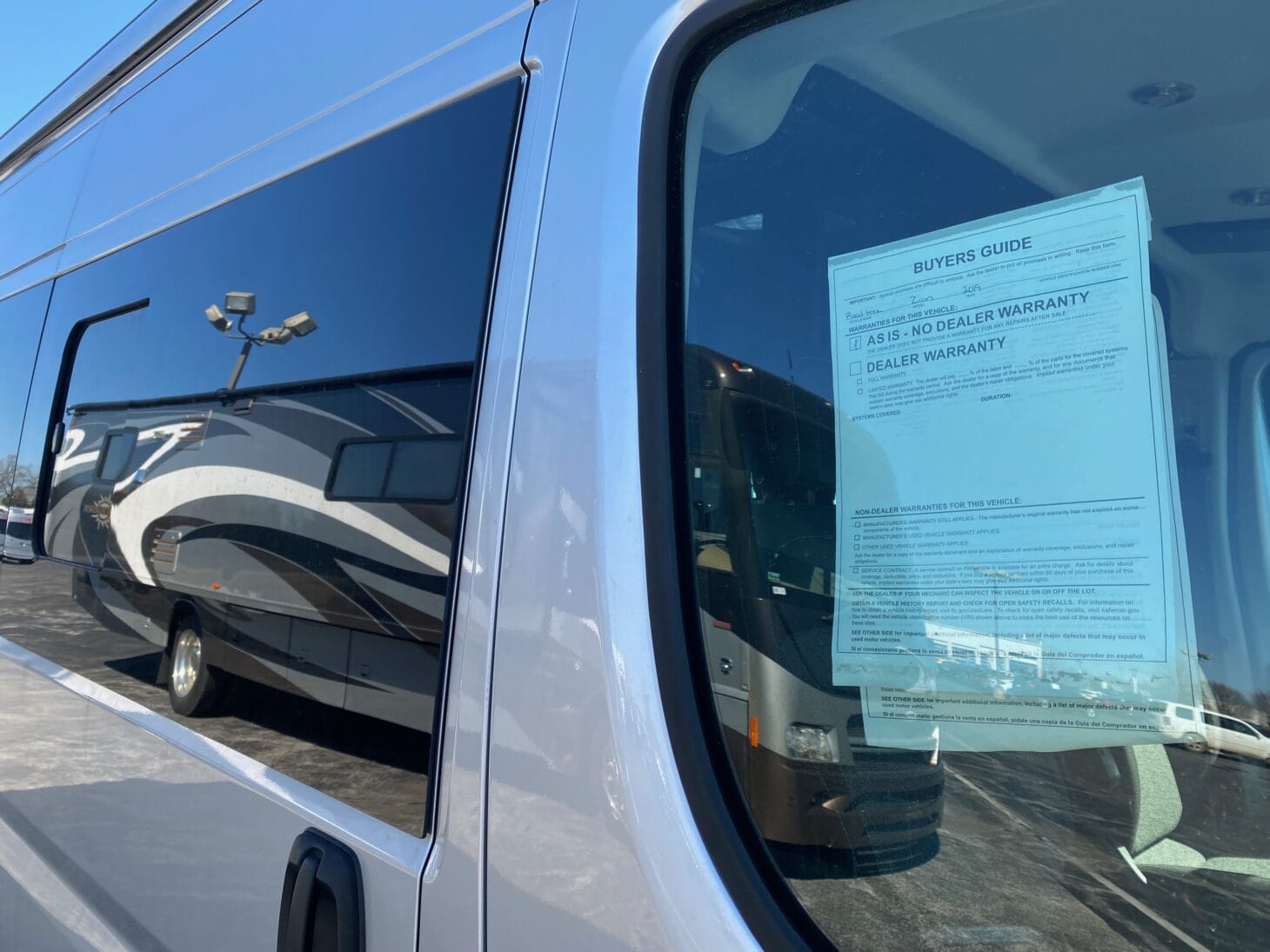
You should also read reviews for the RV service center you choose, just like you do before sending your car to an auto shop.
6. Tank Size Matters
When you look at your first RV, the tank size numbers might be meaningless, but you’ll quickly learn how often your family fills and empties the tanks.
It’s important to have an idea of what your tank size should be before making your first purchase. If you plan to go boondocking or if you have a larger family, you’ll need larger tanks. If you plan to occasionally camp without water or sewer hookups, you can probably get by with smaller tanks, especially if you’re willing to use the campground facilities or conserve water.
7. Don’t Dismiss the Little Things
You might think that you can “learn to live with” crawling over your partner to exit a corner bed, but in reality, it will probably be a daily nuisance. The same is true for other less-than-convenient features, like a wet bath, or having to constantly fold out couches and dinettes for extra sleeping space.
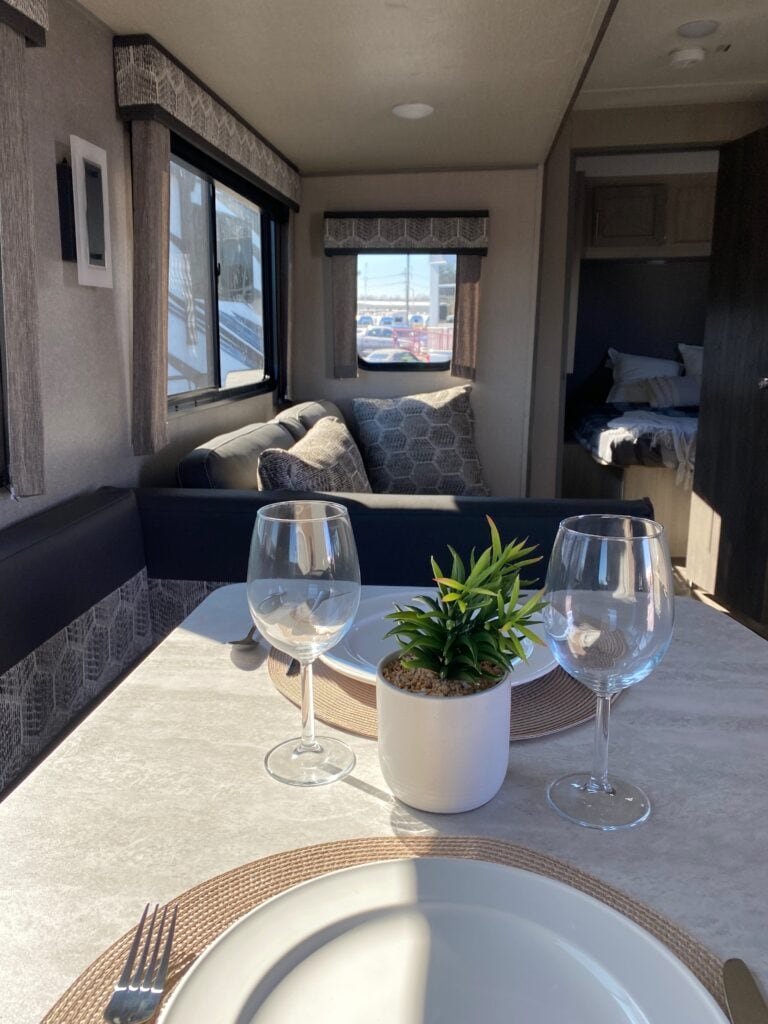
When purchasing your first RV, pay attention to those minor annoyances and don’t discount them. While it’s possible to adapt to some inconveniences, others may take away from your camping experience in a major way.
8. Understand the Space With Your Slides Retracted
Many RV buyers tour rigs with the slides out. While this gives you a good idea of the floor space, it doesn’t show you what the trailer is like with the slides retracted.
Gretchen Holcombe shares her experience of buying a trailer without seeing the interior with the slides retracted: “We didn’t realize until we stopped along the way on our first big road trip that we couldn’t get into the bathroom when the slide was in. So much for using our own bathroom and avoiding public restrooms on the road.”
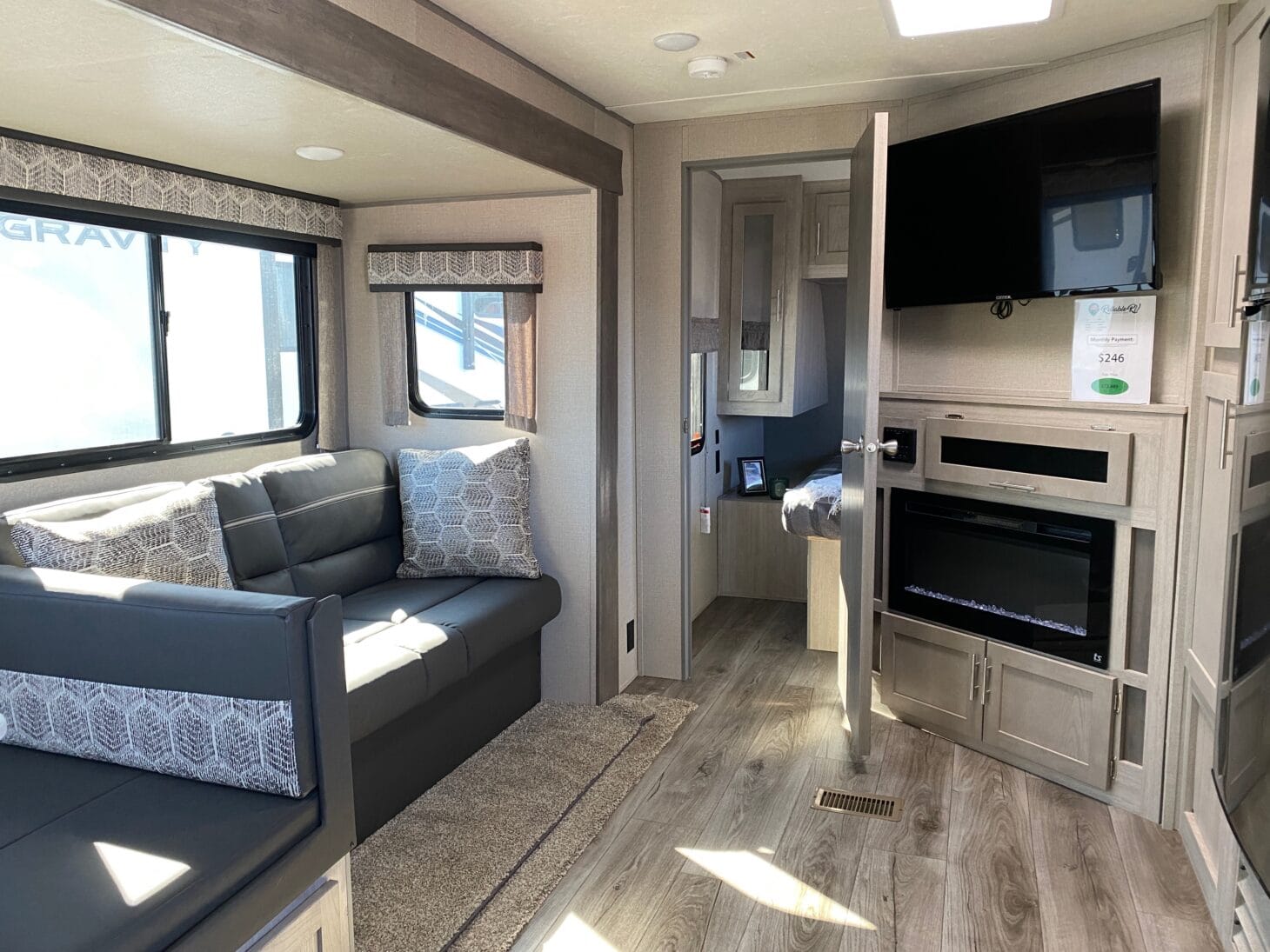
“[Now] we make sure to think through what will and won’t be accessible with the slide in when we’re trailer shopping (especially the bathroom),” she says.
Aside from bathroom access, check to see what storage areas are accessible while packing or unpacking with your slides in. Also, consider what the sleeping space is like with the slides in, in case you have a mechanical issue or campsite where you can’t extend them—this is the case if you plan to overnight camp in parking lots.
9. Pay Attention to Storage Space
When shopping for your first RV, you may not realize how you’ll pack for each trip. While it’s possible to be a minimalist, you still need enough storage for essentials like clothing, food, and camping gear. Also consider items like trash cans, laundry hampers, kitchen accessories, and shoes—all of which need a spot in your RV.
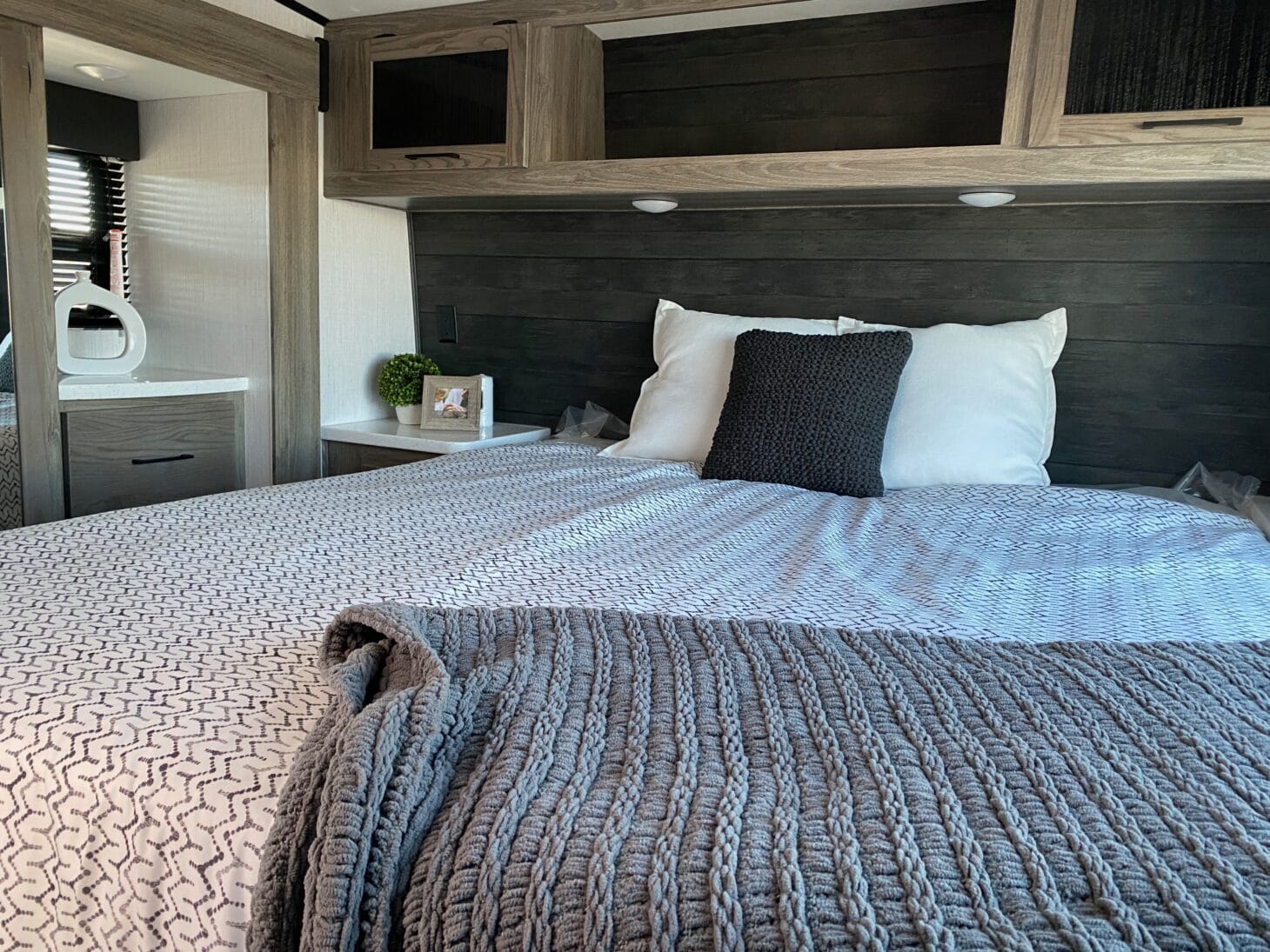
My family’s first trailer didn’t have adequate storage for longer trips, so we used the bathtub as an extra closet and exclusively showered at campground facilities. It worked for a while, but we were glad to upgrade to a bigger trailer with more storage.
Shopping for your first RV with these tips in mind will help you find the right rig for you.

